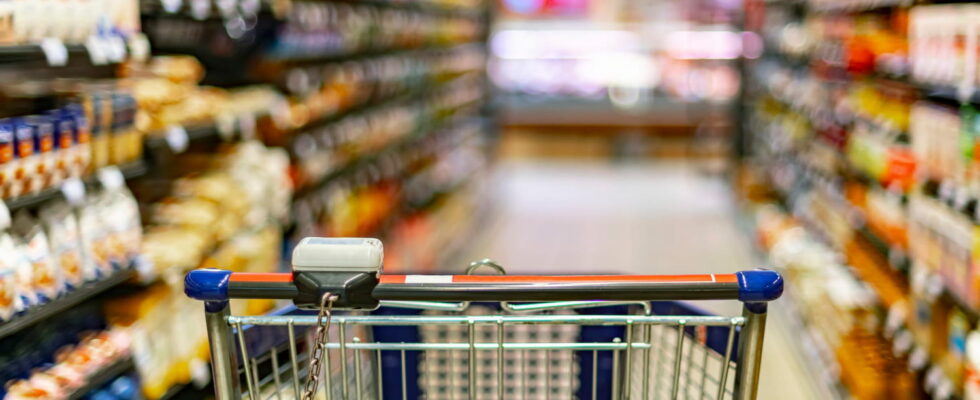With the approval of three CEOs of large food groups, an institute calls for taxing certain products to finance food checks.
How to promote a healthy and sustainable diet? This is the question that the Montaigne Institute wanted to answer in its new report published this Wednesday, October 16. The boss of Cooperative U, Dominique Schelder, the boss of the Bel group, Cécile Béliot and Bruno Vauquette, boss of Sodexo, defend the introduction of a tax on sweet products. This levy would finance food checks worth thirty euros for the poorest households.
According to the Montaigne Institute report, these households consume on average half as much fruit and vegetables as the rest of the population. These checks would provide budgetary support to families for whom eating healthy is often financially difficult.
In England, this proposal has already proven its worth: according to a study, the first eleven months following the introduction of a food tax in the country, children and adults alike consumed less sugar than before.
According to ANSES, which studied the composition of 50,000 products in 2020, 77% of processed foods contain added sugar. Often used as a flavor enhancer, sugar, or more precisely sucrose, is an integral part of most supermarket products. This omnipresence is partially responsible for the increase in overweight and obesity, considered the fifth cause of death in the world.
Social and health virtues
In an interview with the newspaper Le Point, devoted to neurologist Serge Ahmed, the latter states that within the obese population, the risk of sugar addiction is 25 and 30%, compared to 5 and 10% for people with a normal BMI.
Sugar, like any drug, acts on the reward circuit, which is responsible for the production of dopamine. Also called the “happiness hormone”, dopamine creates a feeling of pleasure which accentuates the desire to consume. The dependence is sometimes such that withdrawal symptoms appear in the event of withdrawal: fatigue, irritability, headaches, tremors, etc.
According to the WHO, the maximum sugar consumption should be fifty grams per day per adult, although it recommends an intake of 25g instead. However, 20 to 30% of French people consume more than 100g of sugar per day.
Sweeteners are often advocated as a safeguard against sucrose. Despite everything, aspartame, stevia or sucralose, whose sweetening power is six hundred times greater than that of sugar, are not always good for health. According to ANSES, these intense sweeteners have no benefit on weight or blood sugar control. Scientists have also found that compared to non-consumers, people who ingest sweeteners are more likely to develop cancer.
